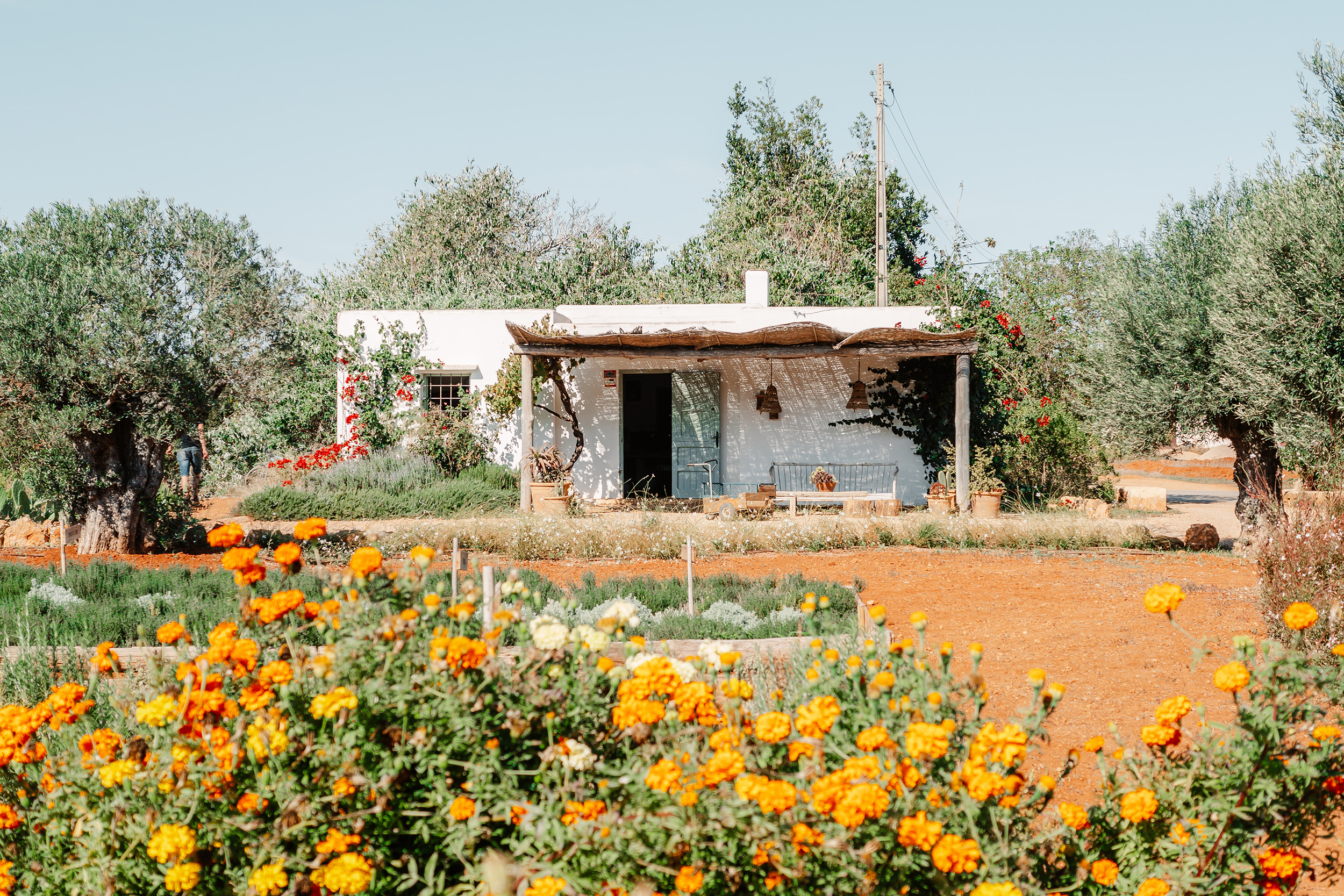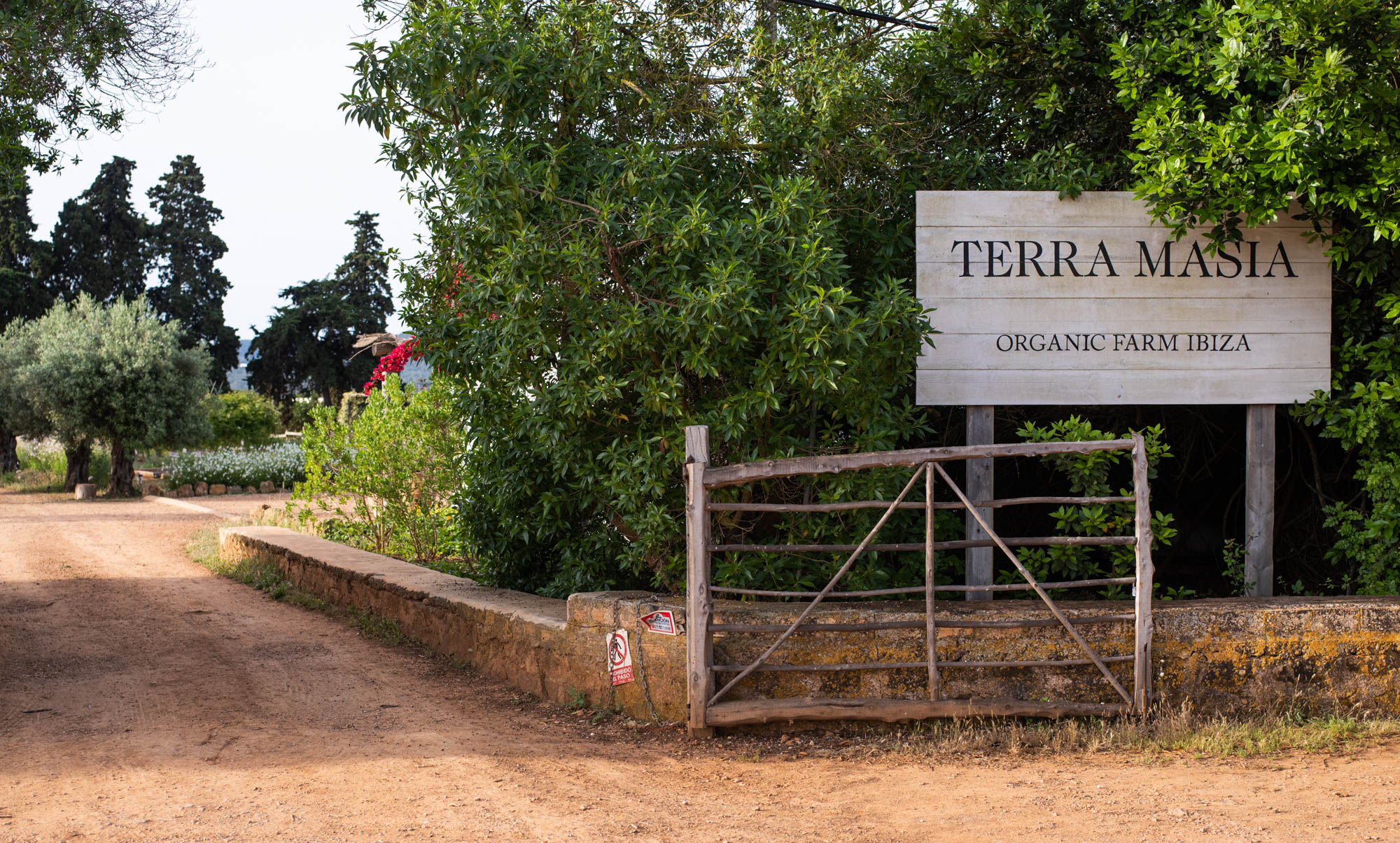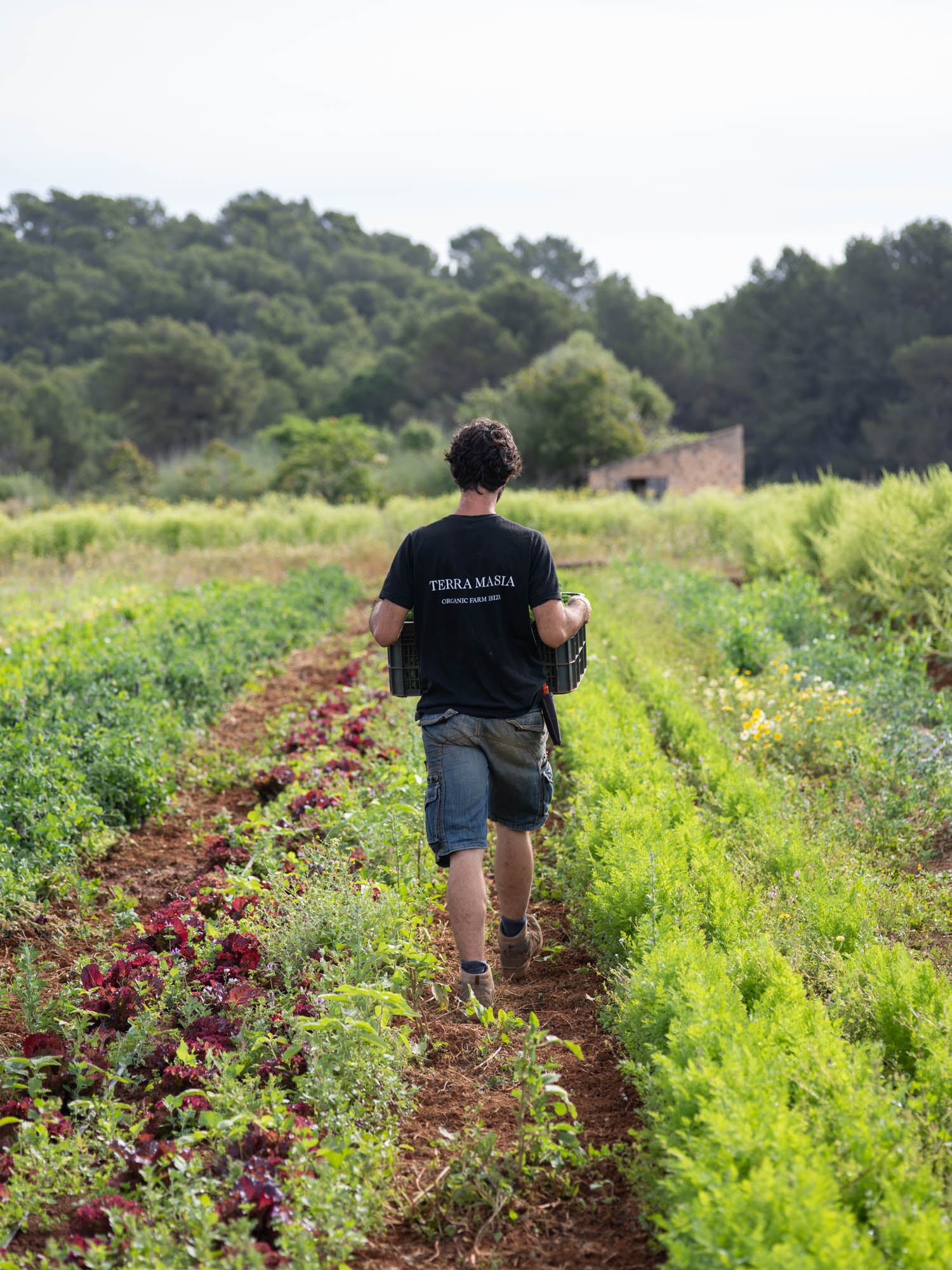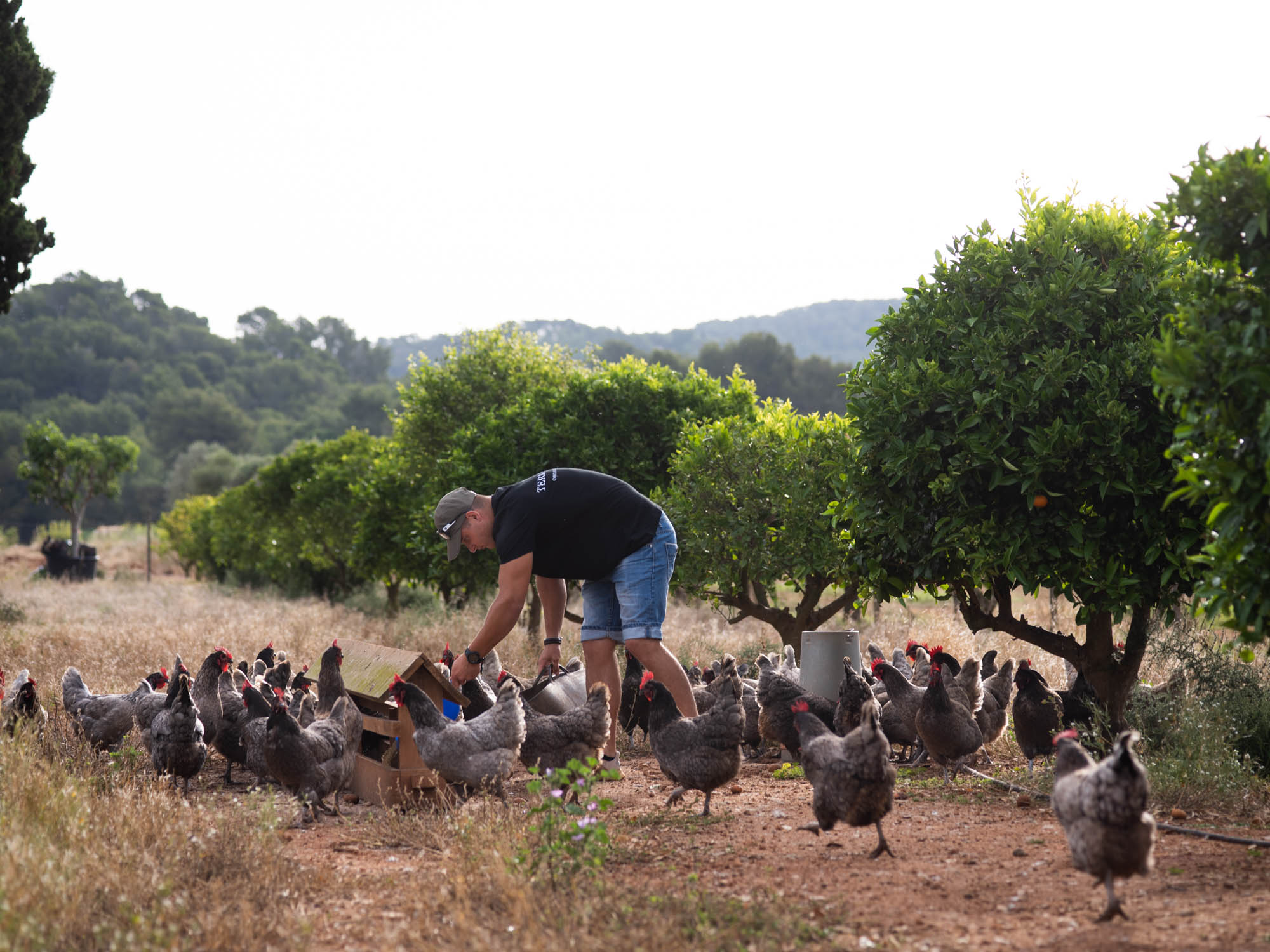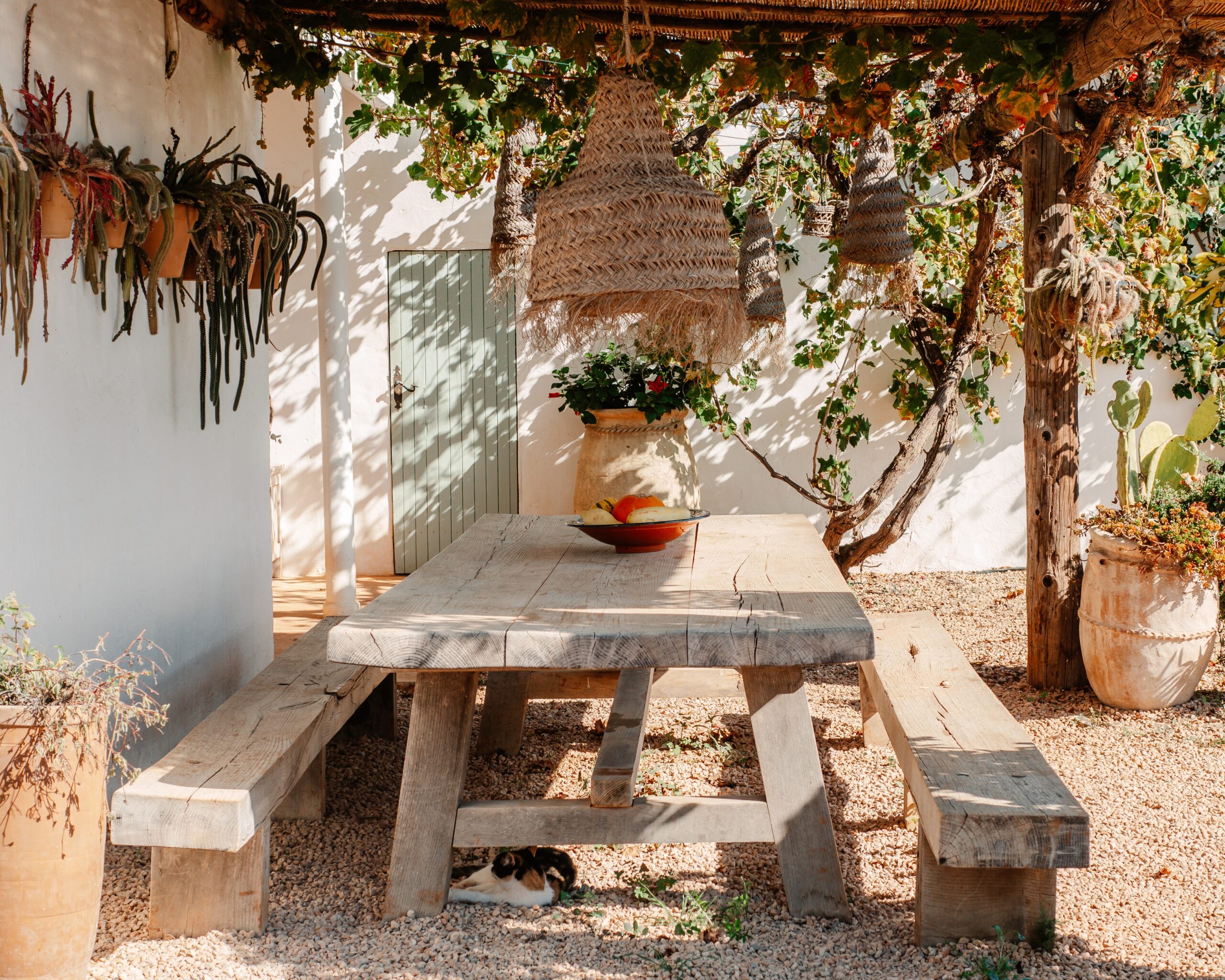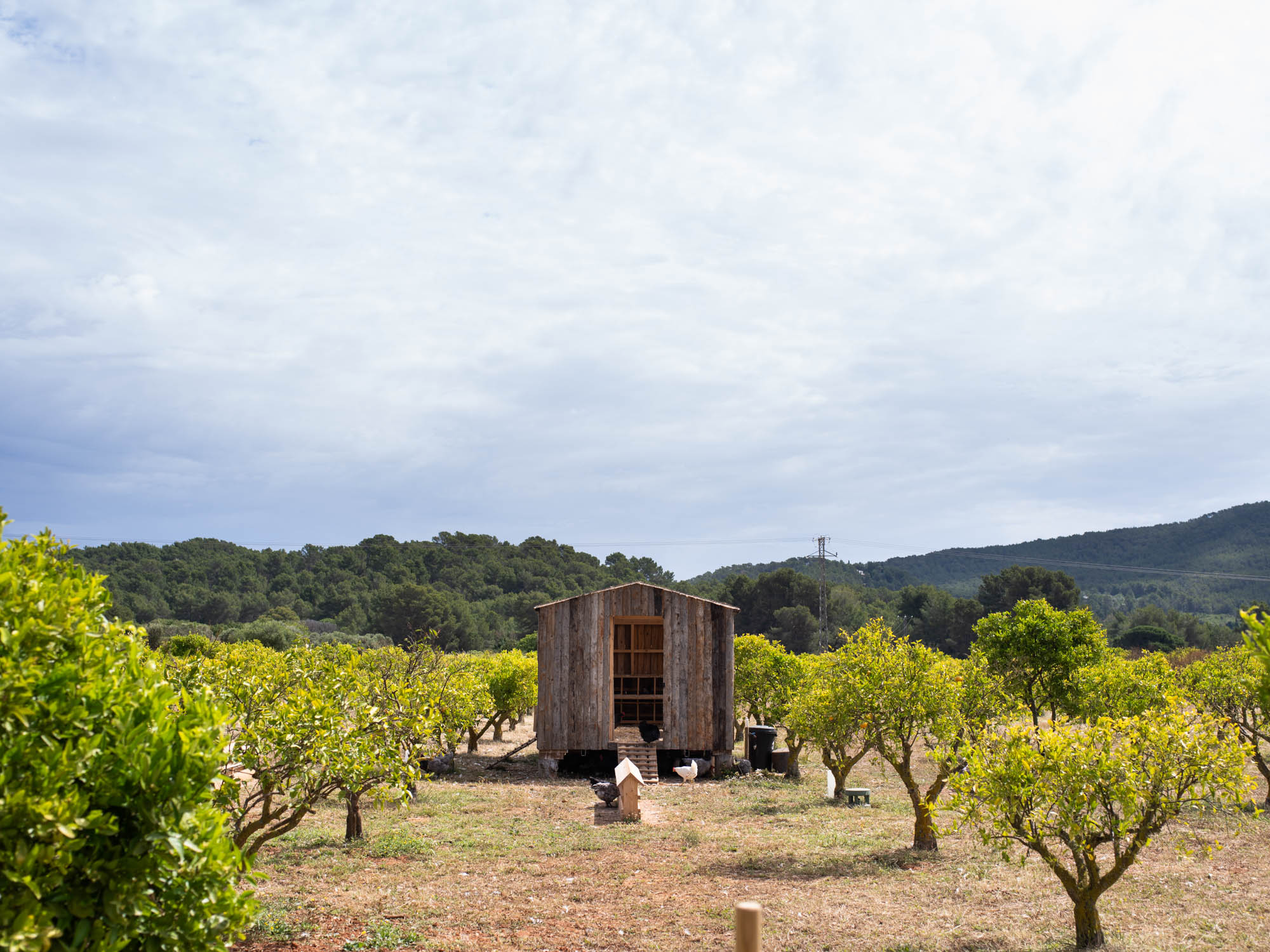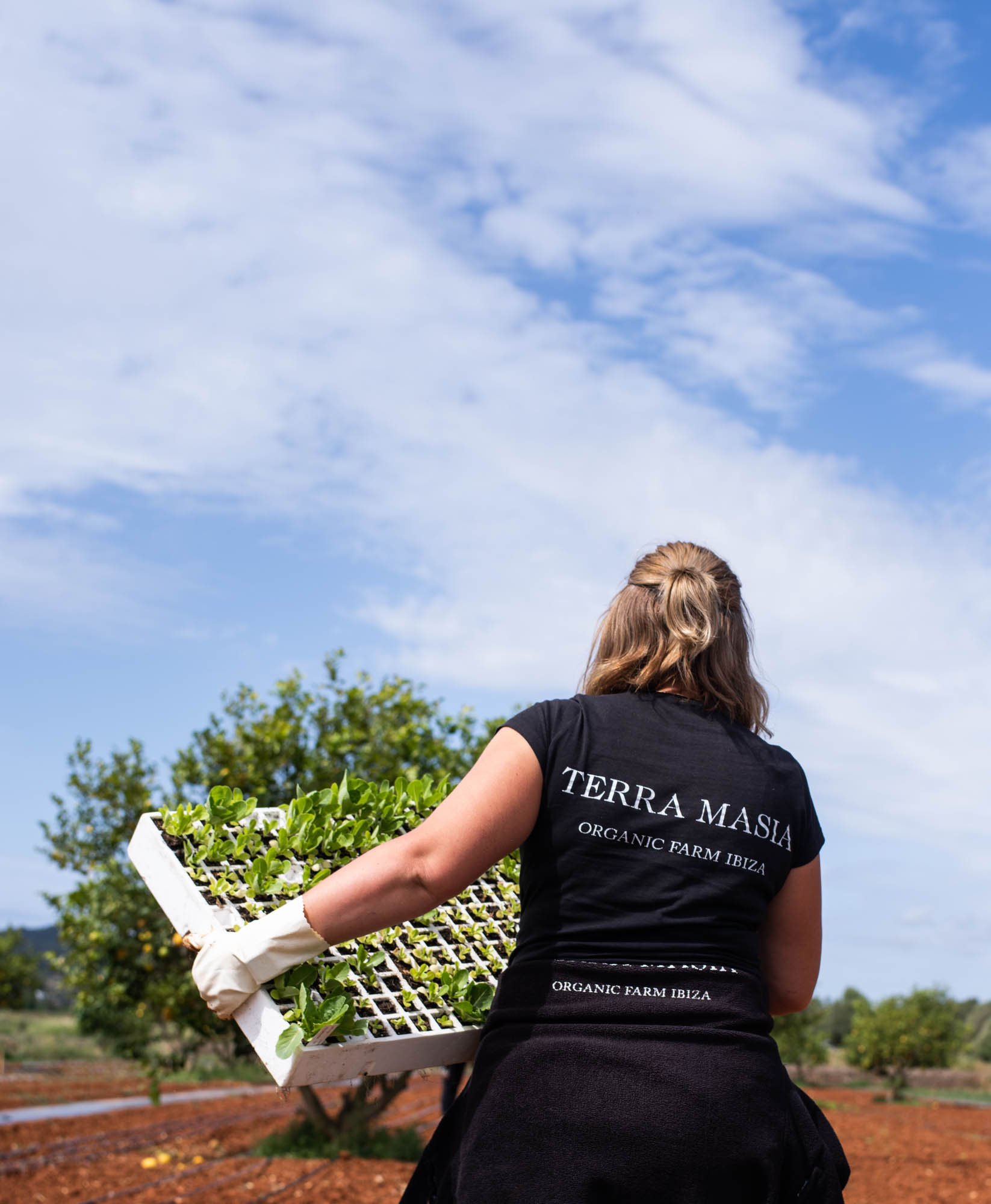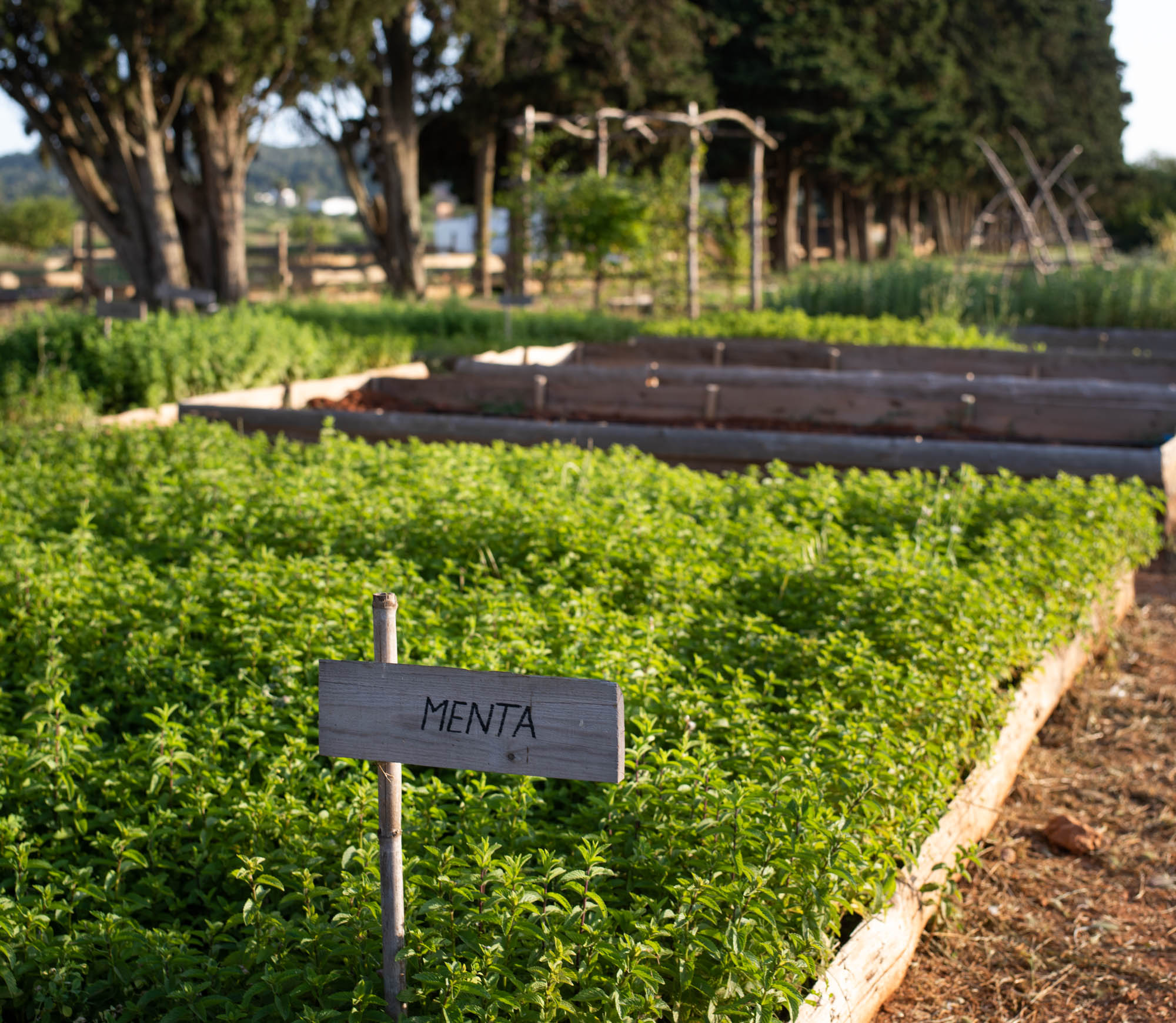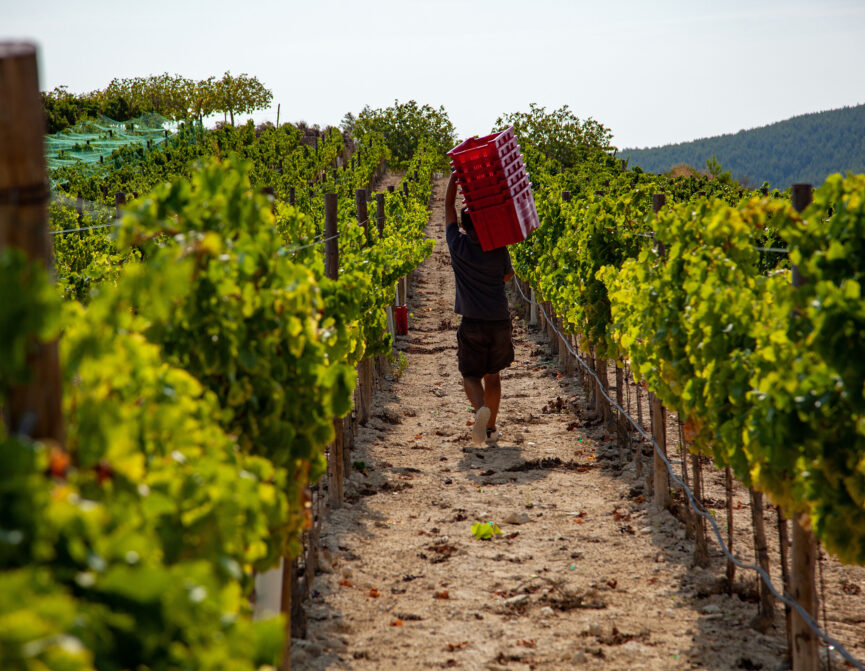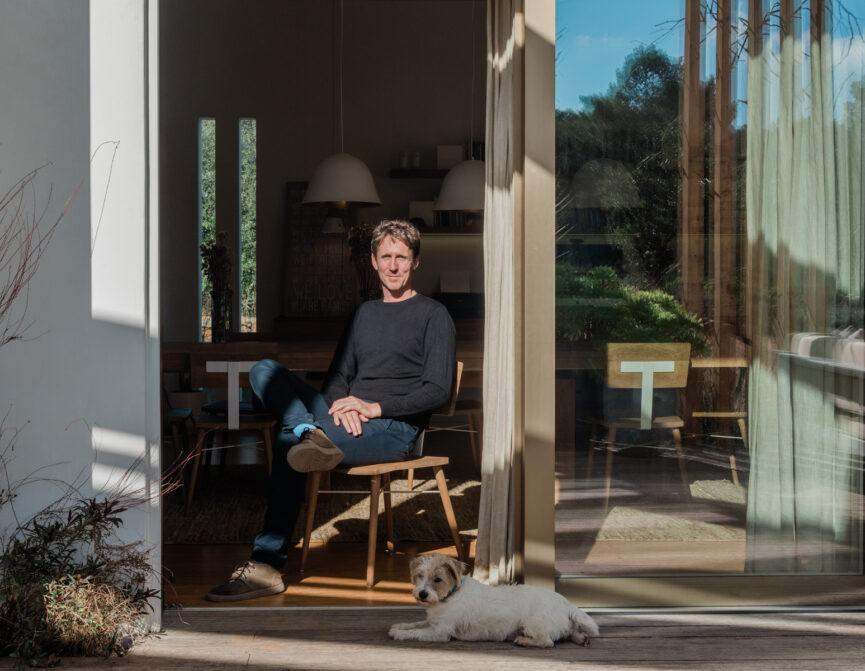Terra Masia, Ibiza’s largest ecological farm, embodies the pull of Ibiza’s sustainable farming practices.
Sewn into the hills near Santa Eulalia, the picturesque gardens and fields thrive in the green-thumbed hands of Marina Morán Jou and her dedicated team. The farm sells fresh and seasonal organic produce, fruit, herbs, edible flowers and free-range eggs. Vegetables are heritage varieties: carrots in rainbow hues, golden beetroots, purple kohlrabi and aromatic salad leaves.
It all began four years ago when Marina Morán Jou bought 56 hectares of abandoned farmland. Where most saw neglected meadows and bare orchards, Marina saw the opportunity not only to cultivate a working farm but to reignite the island’s organic agriculture scene. Slowly, arid land was turned into fertile soil and Terra Masia became a beacon for those interested in buying local and organic produce – a major vehicle for reducing our carbon footprint. “I’m here because I love being part of something that is changing the island for the better,” says Marina. “All my efforts and the work I do is inspired by my love of the land.”
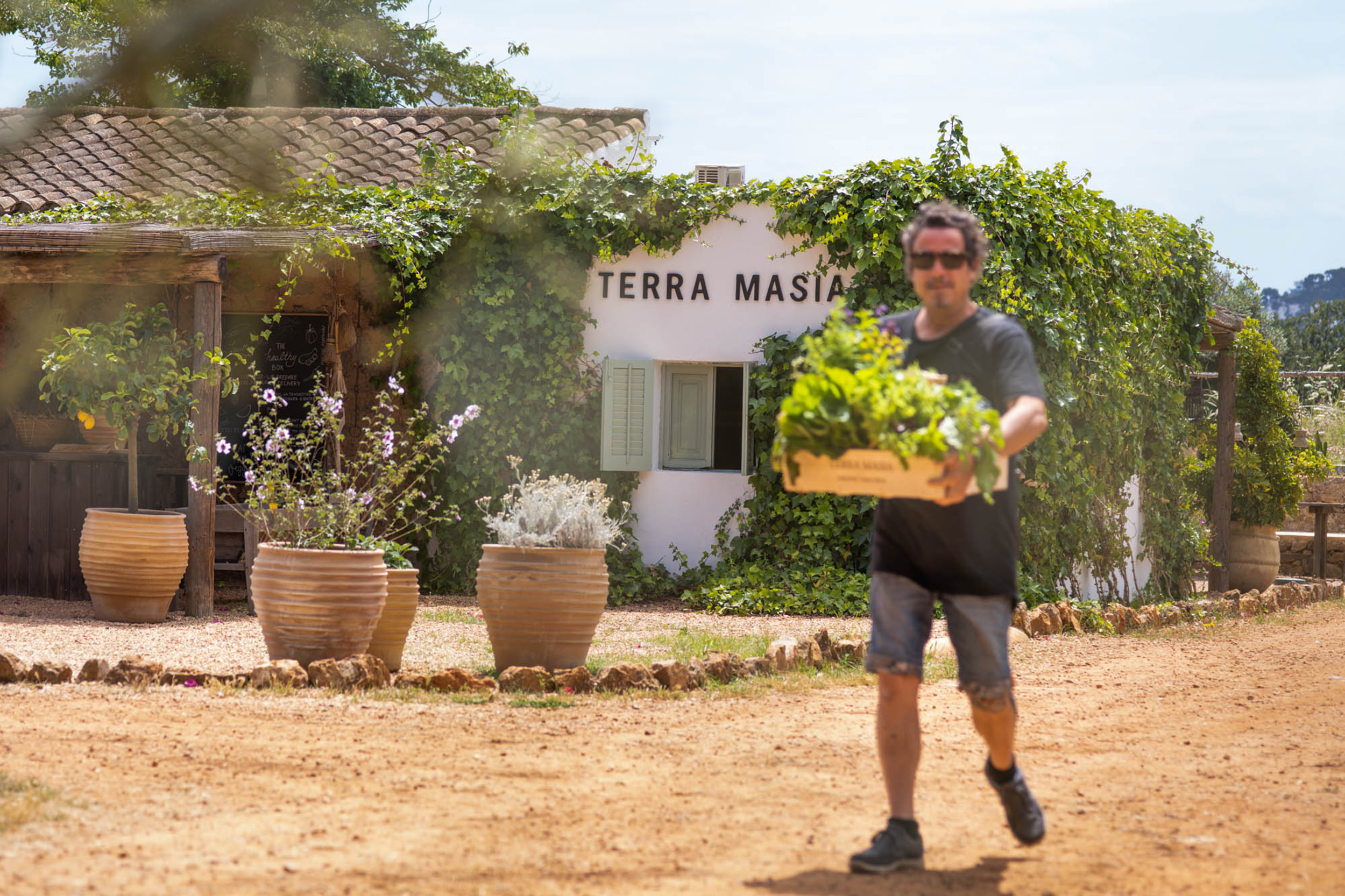
Guided by biodynamic principles, the farmers follow a strict lunar calendar for planting and harvesting. Head farmer Philipp Gandler explains the sense and beauty of these practises: “The moon has a significant impact on the earth. Following the phases of the moon as much as we can gives us a great structure and helps with natural time management.” These methods result in healthier land, plants, animals and, ultimately, healthier people. Terra Masia bears a variety of vegetables and a fruit tree plantation. The farm’s goal is to improve the health and fertility of the soil. “We’re trying to bind more carbon into the soil. Where we are, and across Ibiza, there is a lot of heavy clay in the soil. We do a lot of mulching to introduce nutrients into the land,” says Philipp.
Terra Masia’s sheep, chickens and beehives are in many ways the farm’s assistants. As well as providing manure to enrich the soil, the bees pollinate the fruit trees and vegetables, while sheep wool is used as a fertiliser in the gardens. “It’s a very old technique, but people forget it works so well,” explains Philipp. “We plant all our trees – both fruit and olives – with wool around their roots. It holds water and rots very slowly, releasing nutrients into the soil. We plant our pumpkins, tomatoes and potatoes in the wool too, because they tend to take a lot of nutrients from the soil.” The animals also form part of the rotation farming and regeneration programmes that make Terra Masia’s soil so rich. When you buy according to the seasons, you realise how different your diet is in the winter from in the summer and it becomes easier to appreciate the journey of the products you buy. Philipp suggests spending time in the garden or volunteering on a farm as a way of changing perspectives on organic agriculture but he also sees it as a grounding experience.
One of the challenges of the practice in Ibiza is the lack of resources needed. Organic seeds are hard to come by and shipping them contradicts the environmentally-conscious ethos the farm is built on. Terra Masia has found solutions to bypass this conflict; nettles and neem oils are used as pest repellents. propolis from the bees is turned into a treatment for the animals and the wax is included in various products. “Our biggest focus at the moment is to close the circle on the farm,” explains Philipp. “We don’t want to have to transport anything that we need from the mainland or further afield.”
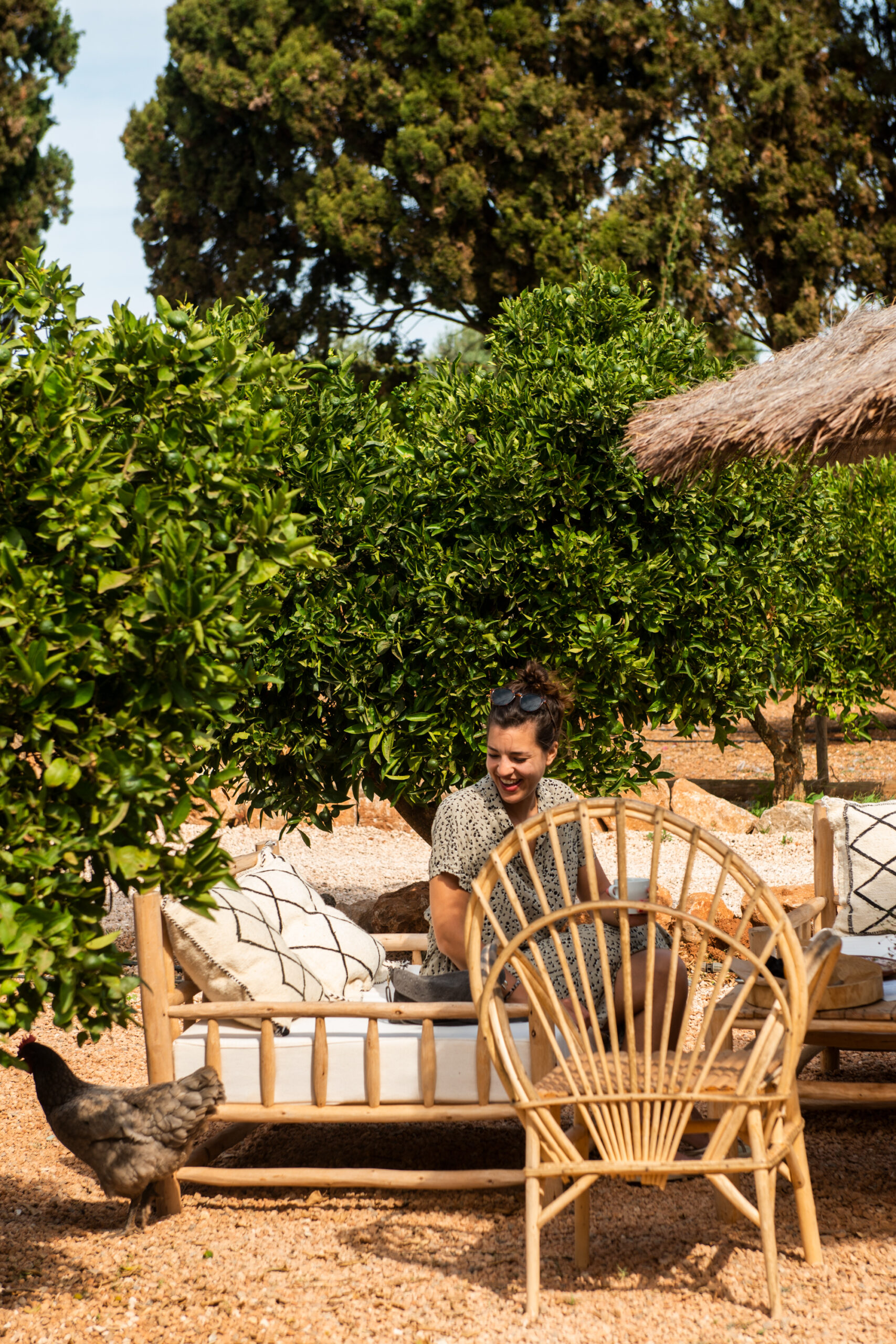
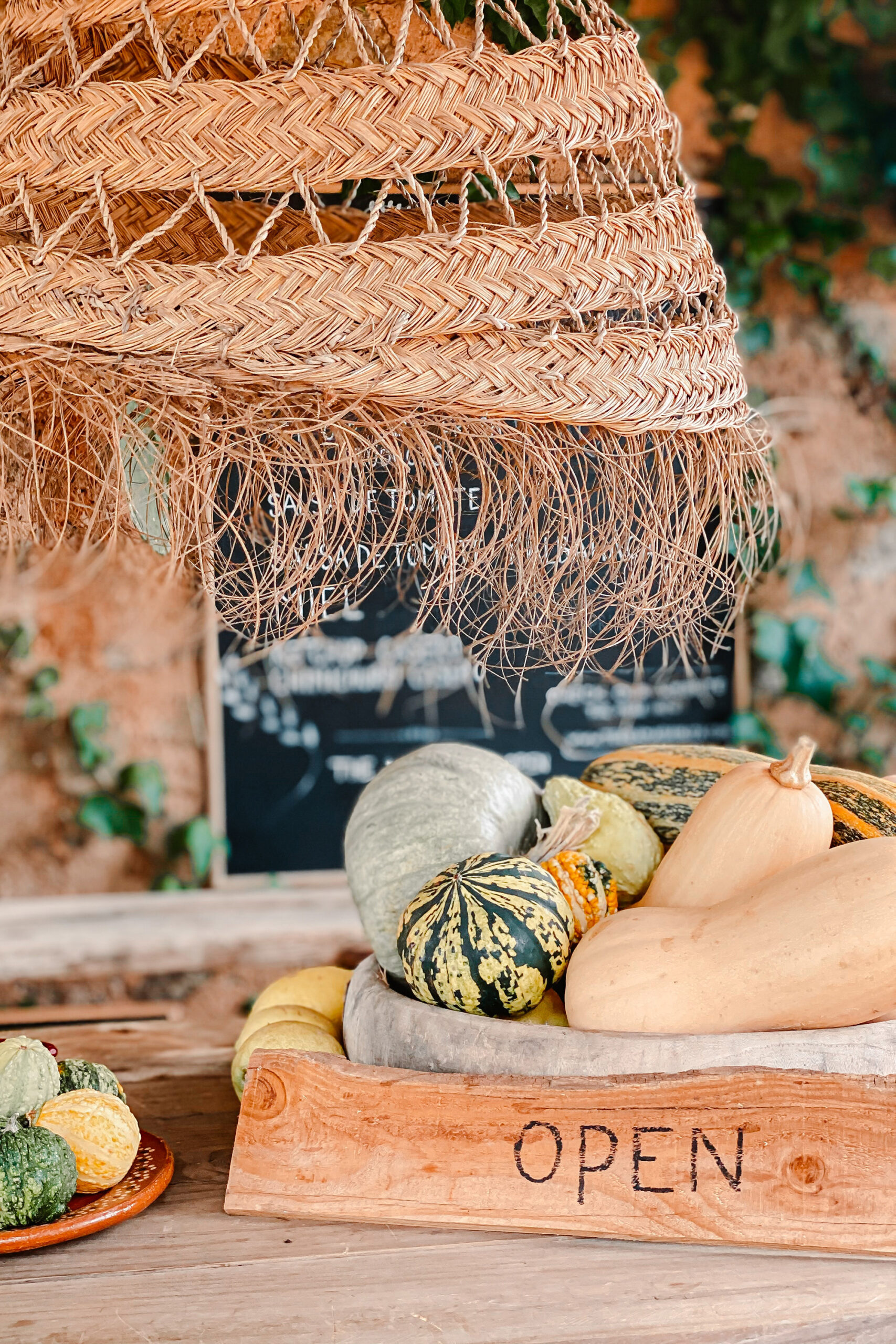

I’m here because I love being part of something that is changing the island for the better.
- Marina Morán Jou, Head farmer


